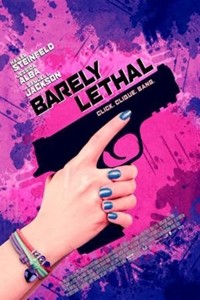 Barely Lethal
Barely Lethal
Director: Kyle Newman
Starring: Hailee Steinfeld, Sophie Turner, Samuel L. Jackson, Rachael Harris, Thomas Mann, Toby Sebastian, Dove Cameron, and Jessica Alba
The assassin film gets a teen high school comedy spin in Kyle Newman’s “Barely Lethal”. Not as lonely as Saoirse Ronan’s teenage Hanna in the 2011 film or as deadly as Scarlett Johansson’s Black Widow from “The Avengers”, Hailee Steinfeld’s character, known simply as #83, is inquisitive and eager to experience the teenage life taken from her. With the aggressiveness and bloodiness dialed way back when compared to other films like it, “Barely Lethal” takes a soft-hearted comedic approach and offers a subdued action film that feels harmlessly overly familiar, while unfortunately also maintaining an anticipation for potential inventiveness that never arrives.
#83 (Hailee Steinfeld) is a teenage special ops agent who has been trained in the deadly arts of assassination since she was a child. Told to hold no remorse and never become attached, #83 does the bidding of her boss Hardman (Samuel L. Jackson). However, this lethal young woman yearns for a normal teenage life, which leads her to faking her own death and assuming the alias of Megan and the identity of a foreign exchange student from Canada. To her surprise, and against the best intelligence on teenage culture she amassed from magazines and movies, the life of a teenager proves harder than the deadly threats she encounters as an assassin.
“Barely Lethal” displays potential throughout, combining the action of hand-to-hand and tactical combat with the modern teen comedy features like high school cliques, joking jocks and mean girls, and the sarcastic and quipping banter that has come to define these films throughout different decades. In a great scene #83 researchers teenage life through film, watching movies like “Clueless”, “Bring It On”, and “Mean Girls” and reading teen fashion magazines to prepare the navigation of adolescent life. Unfortunately the unique qualities that are present here don’t persist; instead it comes and goes with the filler being the monotonous and predictable aspects of average teen comedies seen before.
With a good cast that is squandered, Dove Cameron and Thomas Mann are best in supporting roles. Cameron is particularly good with her quick witted and wisecracking comments. Mann plays the role of audio-video nerd and overlooked good-guy effectively. Hailee Steinfeld is a great actress, though here she is unfortunately poorly composed. The potential to develop her identity into something unique is instead wasted by a formulaic reproduction. And Samuel L. Jackson again plays the leader of a unique group of individuals, in basically the same uniform as Nick Fury from "The Avengers" minus the eye patch.
While the title will possibly raise more eyebrows than interest in the film, “Barely Lethal” displays an early potential that suggests a movement towards interesting places but instead falters with tedious clichés that follow familiar and typical paths.
Monte’s Rating / 2.00 out of 5.00

 San Andreas
San Andreas
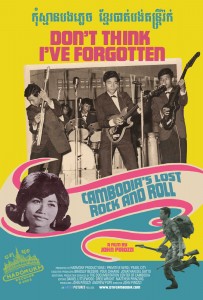 Don’t Think I’ve Forgotten: Cambodia’s Lost Rock and Roll
Director: John Pirozzi
Don’t Think I’ve Forgotten: Cambodia’s Lost Rock and Roll
Director: John Pirozzi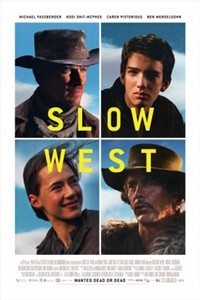 Slow West
Slow West
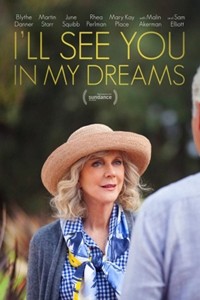 I'll See You in My Dreams
I'll See You in My Dreams
 Tomorrowland
Tomorrowland
 Good Kill
Good Kill
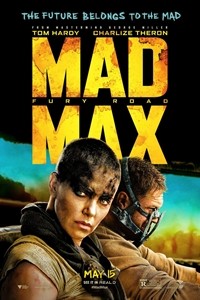 Mad Max: Fury Road
Mad Max: Fury Road
 Pitch Perfect 2
Pitch Perfect 2
 Far From The Madding Crowd
Far From The Madding Crowd
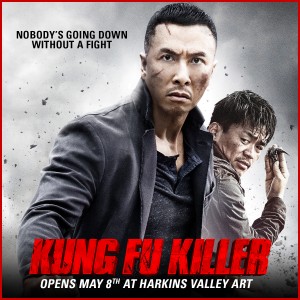 Kung Fu Killer
Kung Fu Killer
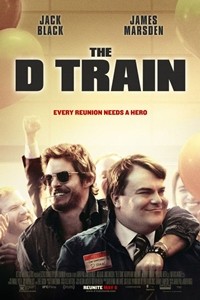 The D Train
The D Train
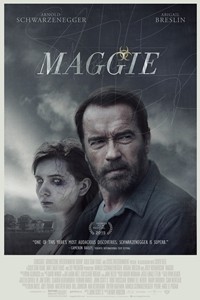 Maggie
Maggie
 Bravetown
Bravetown








